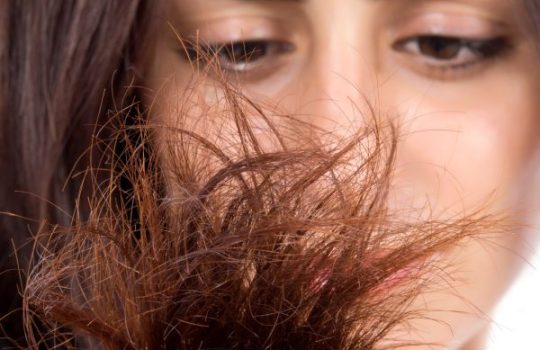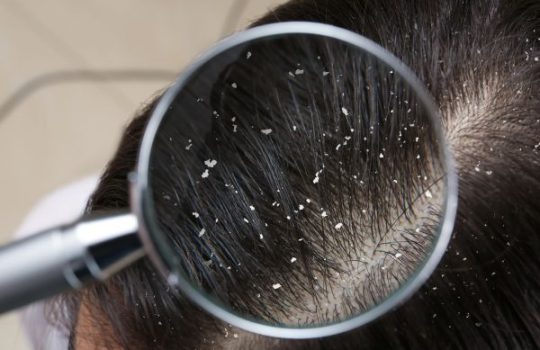Stress and hair loss: causes and solutions
Hair can say a lot about our inner health, especially when stress rears its ugly head! These days, stress is part of our daily lives. Around 8 in 10 French people say they have been stressed during the year, according to the observatory of stress and anxiety in France. But what is the real relationship between stress and hair loss? Can our emotions affect our hair? Discover the impact of hormones and our moods on our mane to understand what our hair says about our well-being.
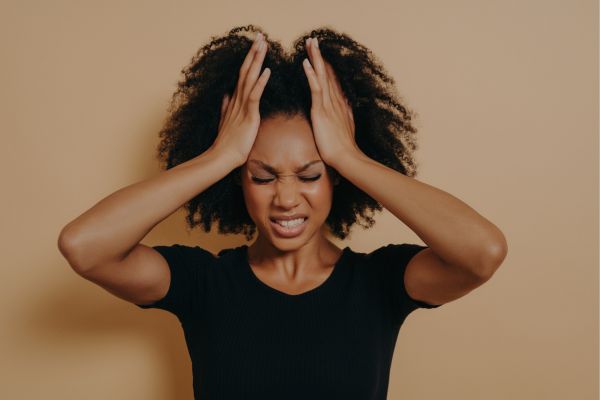
The link between stress and hair loss
When stress begins to take hold, the adrenal glands produce the stress hormone cortisol . This hormone, which comes from the adrenal regions above the kidneys, plays a very important role in the body, because it helps provide energy and regulate immune responses when our body is under stress. However, production can go into overdrive when we are too stressed, which directly or indirectly affects our well-being. In fact, excess stress can disrupt our metabolism, prevent weight loss, alter our sleep and even hinder the hair growth cycle!
And yes, stress and hair loss are linked because this emotion has an impact on the natural growth cycle of our hair. This cycle consists of three distinct stages: the growth phase ( anagen ), the transition phase ( catagen ), and the resting phase ( telogen ). Due to stress, a large number of hairs go into rest mode, which slows down their growth. At the end of the telogen phase, hair falls out, leading to more temporary shedding.
But that's not all ! Stress can also limit blood flow to the scalp, hindering the delivery of essential nutrients to the hair follicles. Result ? Hair becomes weaker, making it more vulnerable to breakage and shedding.
However, it is important to keep in mind that the relationship between stress and hair loss varies greatly from person to person. A variety of causes, including genetics, health conditions and other environmental factors, can be responsible for hair loss. For example, people who have a genetic predisposition to androgenetic alopecia are more likely to be affected by the effects of stress on hair loss. Additionally, hair's response to stress can be influenced by factors such as nutrition, hair care, lifestyle habits and certain medical conditions.
Learn even more about hair loss in this article: hair loss, when to worry >

Is stress responsible for Alopecia areata?
In some cases, stress can be a trigger for specific hair problems, such as alopecia areata. This alopecia is responsible for localized hair loss on the scalp in the form of small round areas. This occurs when the immune system falsely attacks hair follicles, interrupting the hair growth cycle.
Although the exact link between alopecia areata and stress is not completely scientifically established, studies suggest a potential correlation. Moments of intense stress, particularly after traumatic events or prolonged periods of emotional tension, have been associated with triggering or worsening alopecia areata in some people.
However, it is important to point out that the relationship between stress and hair loss can differ significantly from person to person. Stress can be a major trigger for some individuals, while in other people factors such as genetic predispositions or immunological aspects can play a dominant role in the development of alopecia areata.
Learn more about non-scarring alopecia >
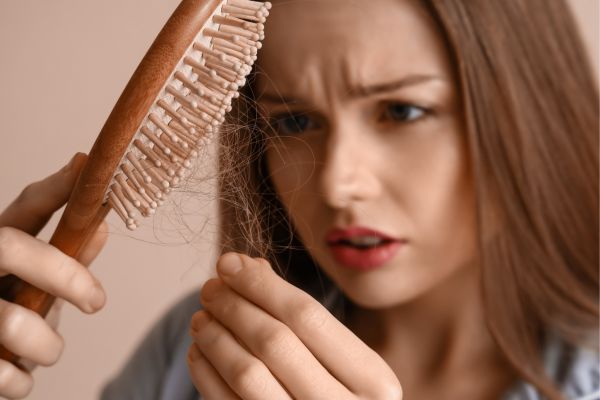
Other factors responsible for hair loss
Although stress and hair loss are linked, other factors may be responsible for this loss.
Genetics: Androgenetic alopecia is a form of hereditary hair loss that is influenced by genes. In women, this form of alopecia is responsible for progressive hair loss on the top of the head.
Health: Certain hormonal imbalances can have an impact on hair density. For example, hypothyroidism can cause a slowed metabolism, which can cause diffuse hair loss. Hyperthyroidism can speed up metabolism and also cause hair loss. Some autoimmune diseases, such as lupus, can cause inflammation that affects hair follicles and leads to hair loss.
Treatments: Certain medications can be responsible for hair loss. This is the case with drugs used in chemotherapy, which affect the cells responsible for hair formation, which causes hair loss. Radiotherapy can also have an impact on hair growth depending on the area irradiated.
Bad hair habits: Unsurprisingly, certain hair practices are not good for the hair and scalp! Excessive coloring, aggressive chemical treatments, tight hairstyles or frequent use of heating appliances... All these practices, when carried out without moderation, can weaken the structure of the hair and lead to premature loss.

The impact of stress on health
Even though stress and hair loss are not always linked, this emotion can play an indirect role by triggering poor lifestyle habits which can in turn affect hair health.
Indeed, chronic stress can cause changes in habits. Sometimes stressed people eat a less balanced diet, reduce their physical activity and have difficulty sleeping. These changes can impact overall health, including hair health, because they reduce the levels of essential nutrients needed for hair growth.
Prolonged stress also causes inflammatory reactions in the body. This inflammation can affect the scalp by disrupting the environment hair follicles need to be healthy. Prolonged inflammation can weaken follicles, which can lead to hair loss.
Finally, some people develop OCD towards their hair during stressful situations. They may unintentionally pull or twist their strands, which can damage hair follicles. Actions like these can weaken hair roots and accelerate hair loss.
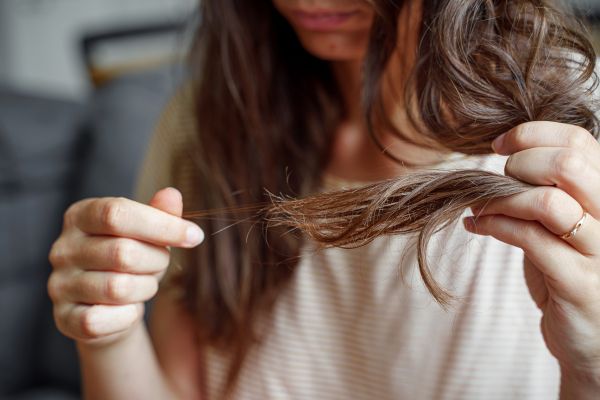
Learn to manage your stress
relaxation techniques is essential to limit hair loss due to stress. It is important to include some good practices such as meditation, yoga and breathing exercises every day. Done regularly, these good habits release endorphins, which helps reduce stress. Also, it is important to pay attention to your diet! A balanced diet rich in essential nutrients contributes to hair health. It is also advisable to talk about your stress or your worries to people who will reassure you. If stress becomes overwhelming, do not hesitate to consult a health professional for appropriate support!


